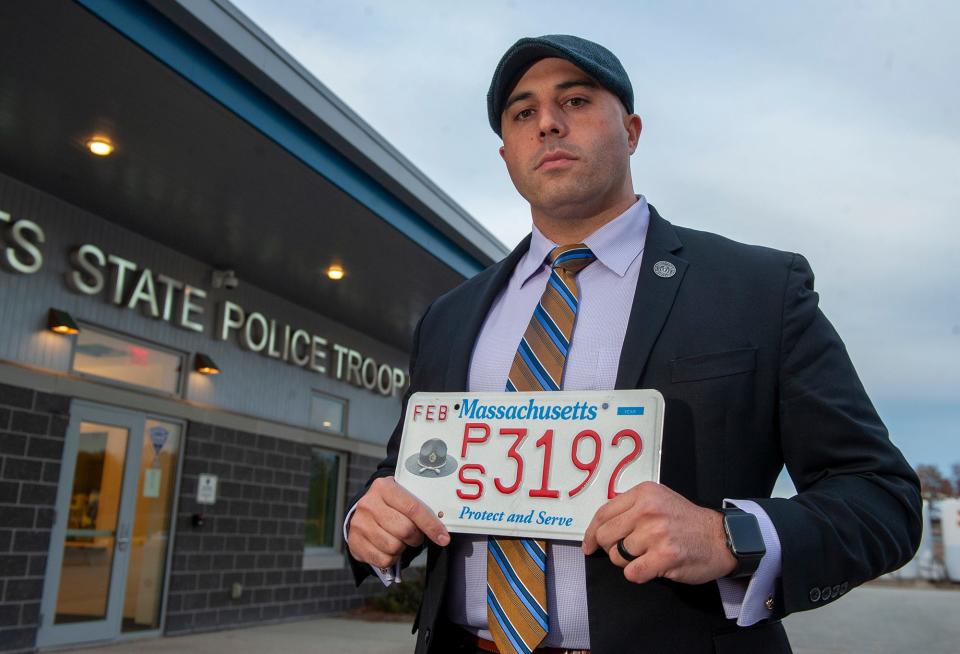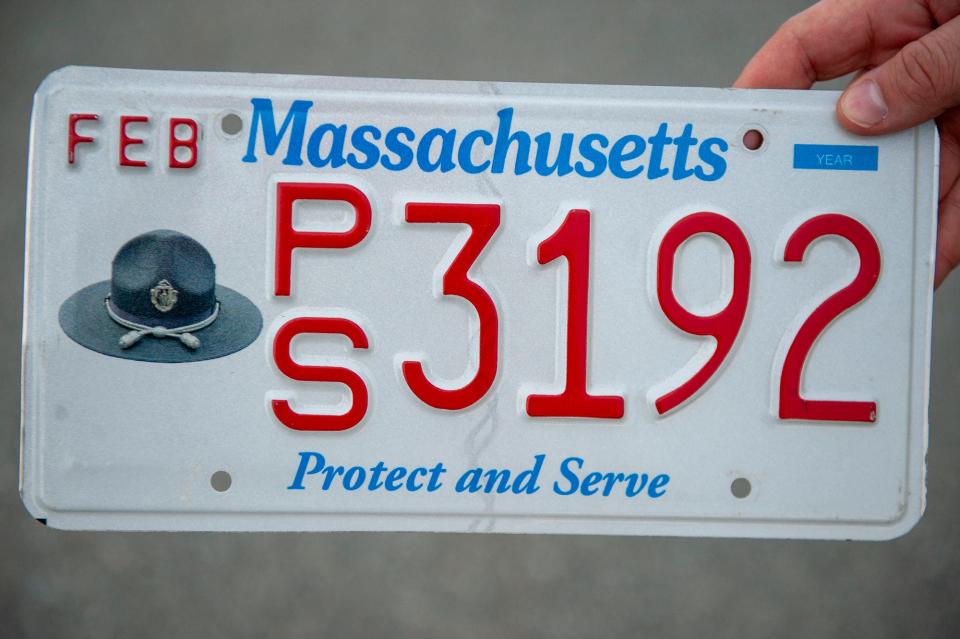Massachusetts sold over 206,000 charity license plates in 5 years. What they represent
The "Boston Red Sox," "Cape Cod & Islands" and "Right Whale" license plates seen commonly on cars in Massachusetts serve a purpose that's more than just to stand out.
They're among dozens of plates that raise thousands of dollars for charities throughout the state.
In fact, over the past five years, the Registry of Motor Vehicles has sold more than 206,500 license plates that benefit more than 30 charitable organizations.
The Massachusetts Environmental Trust, a state organization that works to protect and restore natural resources, was the first organization to work with the state to create a charitable license plate 30 years ago.

Too vulgar for the road?: These custom license plates were denied by the Mass. RMV
"As the first philanthropic organization to partner with the Massachusetts Registry of Motor Vehicles to develop specialty license plates, the Massachusetts Environmental Trust has provided more than $28 million in funding over the last 30 years to critical programs protecting and conserving Massachusetts’ species and natural systems," said Danielle Burney, a spokesperson for the trust.
The Massachusetts Environmental Trust has three specialty license plates — the Right Whale plate, the Striped Bass plate and the Fish & Wildlife plate. In all, there were more than 30,000 of those plates registered in the state in the past five years.
Popular charitable license plates
The number one charitable plate was the Cape & Islands license plate, with more than 37,000 registered vehicles. The plate raises money for various organizations on Cape Cod and the Islands.
Other organizations with a high number of plates include the Red Sox plate (24,145), which raises money for the Red Sox Foundation and the Jimmy Fund; and the New England Patriots plate (17,498), which raises money for the New England Patriots Foundation.
The Daily News had sent a public records request to the Registry of Motor Vehicles on Aug. 8, requesting the number of charitable license plates and the organizations they benefited. The RMV did not respond within the 10 days as required by law and ignored several requests made to its public records portal.
The Daily News then appealed the RMV's non-response to the Secretary of State's office on Oct. 2. On Oct. 17, the Secretary of State's Office ordered the RMV to respond to the request within 10 business days. The RMV turned over the records on Nov. 3.
How much does a specialty plate cost?
Charitable license plates can be ordered from the RMV just like any other passenger license plate, but at an additional cost. Instead of $60, charitable license plates go for $100 (except for the Cape & Islands plate and the Olympic Spirit plate, which each cost $110).

Organizations receive $28 of the initial extra $40 (or $38 for the two that are an extra $50) registration fee but get the full $40 every time the plate is renewed.
The money raised is important to many organizations, said Patrick McNamara, president of the State Police Association of Massachusetts Benevolent Fund.
"We do a lot with it (the money)," he said. "It supports first responders and their families during different scenarios, such as sickness or death. We've really expanded beyond just health and wellness. We've created scholarships and creating a memorial for fallen officers. We do events like donating turkeys in inner cities and Trunk or Treat events where we fill our trunks with candy around Halloween."
Custom plates: Which in Mass. were approved and what do they mean?
The "Protect & Serve" plate has been in existence for three years. So far, a little more than 3,900 of the specialty plates have been registered.
"It's a really great way to support a charity," McNamara said.
How does an organization request a specialty plate?
It does take some effort for an organization to get a specialty plate. It must have at least 750 interested parties before the plates are manufactured.
In addition, the organization must put up a $100,000 bond for the plates to be made to cover any costs for the RMV. That money is held for five years or until at least 3,000 plates are issued. If fewer than 3,000 plates are issued after five years, the RMV keeps a portion of the $100,000 bond to cover its costs.
If an organization can get enough interest for 3,000 pre-paid plates prior to them being manufactured, it does not have to pay the $100,000 bond.
Despite the initial cost, organizations can benefit greatly with a partnership with the RMV, said Burney, of the Massachusetts Environmental Trust.
"The purchase of these license plates is a great way to bring awareness about our endangered species and the ecosystems they depend on," she said. "We look forward to continuing this partnership to support our conservation efforts further."
Norman Miller can be reached at 508-626-3823 or nmiller@wickedlocal.com. For up-to-date news, follow Norman Miller on Twitter @Norman_MillerMW or on Facebook at facebook.com/NormanMillerCrime.
This article originally appeared on MetroWest Daily News: Massachusetts charity license plates: How many are on the road

